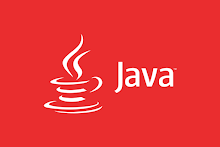The performance experiment will be carried out for one year, which is roughly the time it will take for a spacecraft to travel to Mars. At the moment, lots of calculations for space research
projects are carried out on Earth, but this brings in an unavoidable factor of latency.
The hardware, which is being talked about here, is an Apollo 40 server with a high-speed HPC interconnect running Linux. It has a water cooled enclosure and additional software to take care of the environmental constraints.
This device is the first high-performance commercial off-the-shelf computer to run one teraflop at the ISS. For those who don’t know, one teraflop is one trillion calculations per second, which is 30 times faster than a laptop.
Mark Fernandez, HPE’s Americas HPC Technology Officer, says that engineers are ready to launch the multi-node High-Performance LINPACK (HPL) benchmark test. This test will determine the number of multiplications the system can produce per second.
“Now that all the hardware installations have been successfully completed, it’s time for me to take over and begin the necessary software downloads and system housekeeping. All goes as planned. The system in space is running identically to its twin on Earth,” Fernandez’s Captain’s Log states.
Over the upcoming months, the engineers will study this installation and its performance.


Comments
Post a Comment